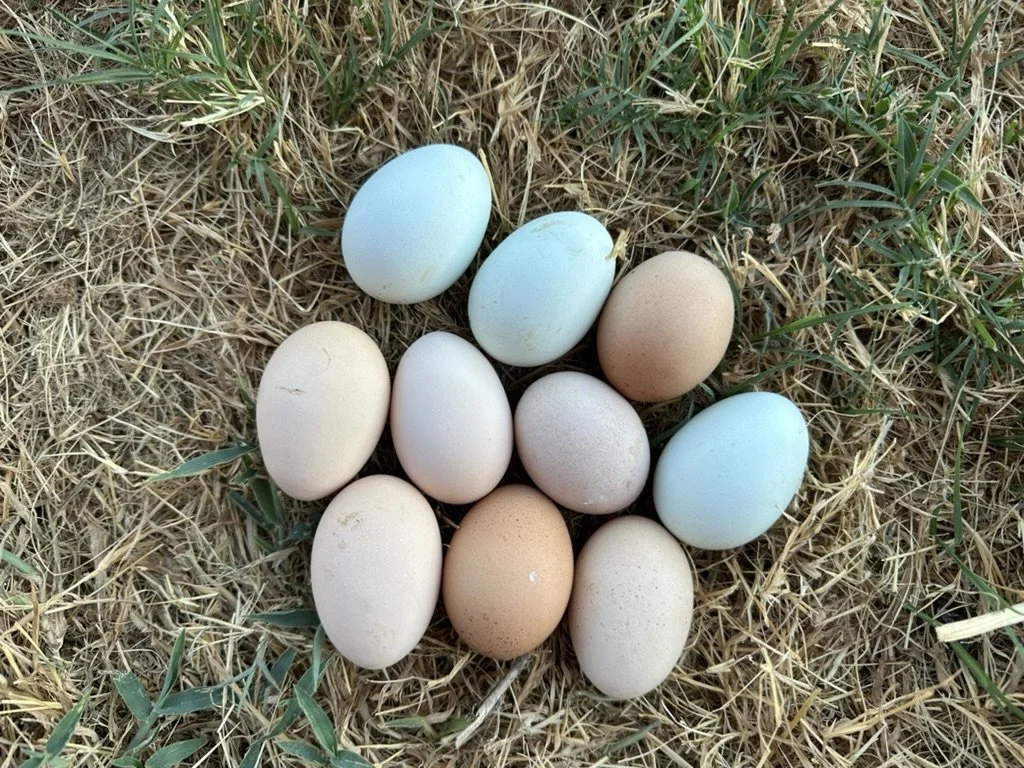Pasture Raised Eggs
Our pasture-raised eggs come from pasture raised hens that roam freely on 90 acres. Because of this, our eggs have an enhanced flavor compared to store bought eggs. Hens that spend time outdoors were found to have 3 times the vitamin D3 compared to eggs from hens that do not have access to the outdoors. In addition to this, pasture raised eggs have less saturated fat, increased vitamins A, E, and D, more Omega-3 fatty acids, and more beta carotene.
Our duck eggs are also available for consumption or hatching. The taste of duck eggs does vary from that of chicken eggs… its flavor is more intense and “creamier” as some have described it and the eggs are larger in size. Duck eggs contain about 30% more protein than chicken eggs and the type of diet affects the taste of the duck eggs. Duck eggs contain more Omega-3, Vitamins A and D, fatty acids, choline, folate, and iron than chicken eggs.
Our pasture-raised eggs come from pasture raised hens that roam freely on 90 acres. Because of this, our eggs have an enhanced flavor compared to store bought eggs. Hens that spend time outdoors were found to have 3 times the vitamin D3 compared to eggs from hens that do not have access to the outdoors. In addition to this, pasture raised eggs have less saturated fat, increased vitamins A, E, and D, more Omega-3 fatty acids, and more beta carotene.
Our duck eggs are also available for consumption or hatching. The taste of duck eggs does vary from that of chicken eggs… its flavor is more intense and “creamier” as some have described it and the eggs are larger in size. Duck eggs contain about 30% more protein than chicken eggs and the type of diet affects the taste of the duck eggs. Duck eggs contain more Omega-3, Vitamins A and D, fatty acids, choline, folate, and iron than chicken eggs.
Our pasture-raised eggs come from pasture raised hens that roam freely on 90 acres. Because of this, our eggs have an enhanced flavor compared to store bought eggs. Hens that spend time outdoors were found to have 3 times the vitamin D3 compared to eggs from hens that do not have access to the outdoors. In addition to this, pasture raised eggs have less saturated fat, increased vitamins A, E, and D, more Omega-3 fatty acids, and more beta carotene.
Our duck eggs are also available for consumption or hatching. The taste of duck eggs does vary from that of chicken eggs… its flavor is more intense and “creamier” as some have described it and the eggs are larger in size. Duck eggs contain about 30% more protein than chicken eggs and the type of diet affects the taste of the duck eggs. Duck eggs contain more Omega-3, Vitamins A and D, fatty acids, choline, folate, and iron than chicken eggs.


